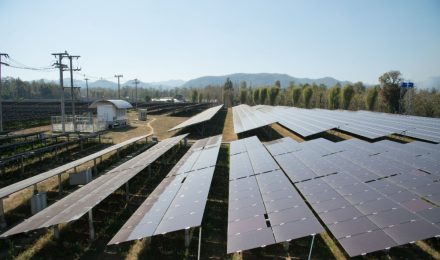The need for renewable energy sources has become increasingly important in the past few years. With the growing population and increasing demand for energy, the need to reduce greenhouse gas emissions and to find alternative sources of energy has become a priority. Solar energy has emerged as one of the most promising and efficient renewable energy sources. It is abundant, versatile, and can be used in many different ways. In addition, solar energy has the potential to benefit farmers and agricultural professionals through the education and outreach of solar energy and its applications. This article will explore the benefits and applications of solar energy education and outreach for farmers and agricultural professionals.
Benefits of Solar Energy Education and Outreach
Solar energy education and outreach are important for farmers and agricultural professionals, as they can provide them with the knowledge and understanding to maximize the potential of solar energy. Solar energy education and outreach can help farmers and agricultural professionals to understand the benefits of solar energy, including financial, environmental, and social benefits.
Financial Benefits
One of the most significant financial benefits of solar energy education and outreach for farmers and agricultural professionals is the potential to save money on energy costs. Solar energy is a renewable source of energy and its use can help farmers and agricultural professionals to reduce their energy costs. Solar energy systems can be used to generate electricity, which can then be used to power various agricultural equipment, such as pumps, irrigation systems, and greenhouses. By using solar energy to power these systems, farmers and agricultural professionals can save money on electricity costs. Additionally, solar energy systems can provide an additional source of income, as farmers and agricultural professionals can sell the excess energy that is generated back to the grid.
Solar energy education and outreach can also help farmers and agricultural professionals to understand the potential financial benefits of investing in solar energy systems. Solar energy systems can be expensive to install, but they can provide a long-term source of revenue for farmers and agricultural professionals. Solar energy systems can also help farmers and agricultural professionals to reduce their reliance on energy from outside sources, which can further reduce their energy costs.
Environmental Benefits
Solar energy education and outreach can also help farmers and agricultural professionals to understand the environmental benefits of solar energy. Solar energy is a clean and renewable source of energy and its use can help reduce emissions of greenhouse gases. By using solar energy to power their agricultural equipment, farmers and agricultural professionals can help to reduce their carbon footprints. Solar energy can also help to reduce air pollution and water pollution, as it does not produce any hazardous pollutants.
Social Benefits
Solar energy education and outreach can also help farmers and agricultural professionals to understand the potential social benefits of utilizing solar energy. Solar energy can help to improve the quality of life in rural communities, as it can provide an additional source of income. Solar energy can also help to create jobs in the agricultural sector, as more people are needed to install, maintain, and operate solar energy systems. Additionally, solar energy can help to reduce energy poverty, as it can provide an affordable source of energy to those who need it most.
Practical Use of Solar Energy Education and Outreach
Solar energy education and outreach can be used to help farmers and agricultural professionals become more knowledgeable about the various applications of solar energy. Solar energy can be used for heating, cooling, lighting, and powering various electrical equipment. Solar energy can also be used to generate electricity, which can then be used for a variety of purposes. Solar energy can be used to power irrigation systems, pumps, and other agricultural equipment. Additionally, solar energy can be used to power greenhouses, which can help farmers and agricultural professionals to increase crop production.
Solar energy can be used to generate electricity through photovoltaic (PV) cells. PV cells are made up of semiconductor materials that convert sunlight into electricity. PV cells can be used in a variety of ways, including in large-scale solar energy projects, such as solar farms and solar parks, or in small-scale applications, such as roof-mounted PV systems. PV cells can be used to power homes, businesses, and other facilities.
Solar energy can also be used to generate heat energy. Solar thermal energy is generated through the use of solar collectors, such as solar thermal panels. Solar thermal energy can be used to heat water, to heat homes, and to provide process heat for industrial applications. Solar thermal energy can be used to generate steam, which can then be used to power turbines and generate electricity. Solar thermal energy can also be used for cooling and air conditioning applications.
Solar energy can also be used to power greenhouses. Solar greenhouses use the sun’s energy to provide light and heat for plants. This can help farmers and agricultural professionals to increase crop production and to extend the growing season. Solar greenhouses use solar energy to heat the air inside the greenhouse, while also providing natural light for plants to grow. Solar greenhouses can also be used to reduce energy costs, as they require no energy from outside sources.
Solar energy can also be used to power various agricultural equipment, such as irrigation systems, pumps, and other agricultural machinery. Solar-powered irrigation systems can help farmers and agricultural professionals to reduce energy costs and to save time. Solar-powered pumps can also help farmers and agricultural professionals to increase water efficiency and to reduce water usage.
In addition to these applications, solar energy can also be used to power electric vehicles. Electric vehicles are powered by solar energy and can be used for a variety of purposes, such as transportation, agricultural, and construction. Electric vehicles can help farmers and agricultural professionals to reduce their carbon footprint and to reduce their reliance on fossil fuels.
Solar energy education and outreach can help farmers and agricultural professionals to understand the potential benefits of using solar energy and the various applications of solar energy. Solar energy has the potential to provide a clean and renewable source of energy and can help farmers and agricultural professionals to reduce energy costs, increase crop production, and reduce their reliance on energy from outside sources. Solar energy education and outreach can help farmers and agricultural professionals to become more knowledgeable about the potential benefits of using solar energy and the various applications of solar energy.
Conclusion
Solar energy education and outreach are important for farmers and agricultural professionals. Solar energy education and outreach can help farmers and agricultural professionals to gain an understanding of how solar energy works and how it can be used on their farms and businesses. Solar energy education and outreach can also help farmers and agricultural professionals to better understand the potential financial, environmental, and social benefits of utilizing solar energy. Finally, solar energy education and outreach can help farmers and agricultural professionals to understand the various applications of solar energy and the potential benefits of installing solar energy systems.



